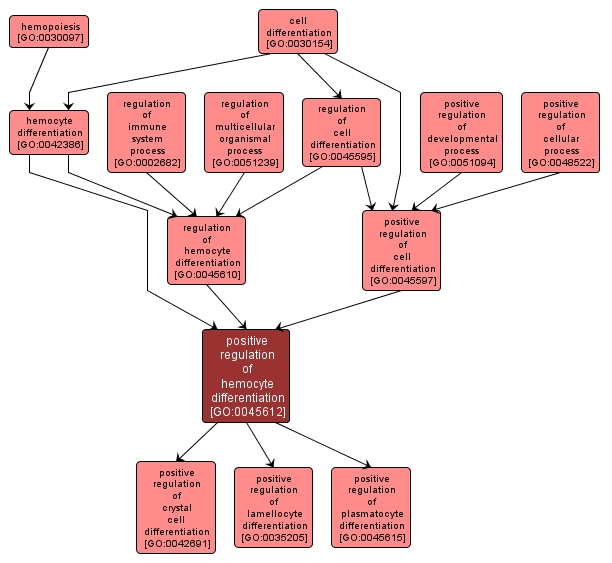GO TERM SUMMARY
|
| Name: |
positive regulation of hemocyte differentiation |
| Acc: |
GO:0045612 |
| Aspect: |
Biological Process |
| Desc: |
Any process that activates or increases the frequency, rate or extent of hemocyte differentiation. |
Synonyms:
- activation of hemocyte differentiation
- up regulation of hemocyte differentiation
- up-regulation of hemocyte differentiation
- stimulation of hemocyte differentiation
- positive regulation of arthropod blood cell differentiation
- upregulation of hemocyte differentiation
|
|

|
INTERACTIVE GO GRAPH
|














